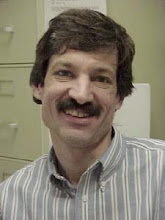OK, time to restart this blog, after spending 13 days with fellow teachers of writing in the Hoosier Writing Project Summer Institute. But today is July 4th, and instead of writing something new, I'm going to post this piece I wrote a few years ago. It seems apt to me still.
Theologians and those who argue about doctrine are like the infamous medieval thinkers who speculated about how many angels could fit on the head of a pin. Endless arguments and explications about pointless issues! And let’s face it: human beings know NOTHING about God or gods or any divinely-inspired truth. Human beings only know what they can see and touch in some way (science, observation), or what they feel (emotional truth), or what they think. We learn about how to live from parents and other family members, from various mentors, teachers, and friends, and from our own experience. Wise people through the ages have spoken and written various truths, as they saw them, and we can learn from them. But we should not follow blindly the teachings of any human being, past or present. Nor should we worship any so-called holy book, be it the Torah, the Christian Bible, the Quran, the Vedas, or any other scripture.
Only a small number of verses in the Bible, for example, shed light on our predicament as human beings. The Sermon on the Mount, some of the Psalms, some Proverbs, some strong passages in prophetic books—all are sources of human wisdom and reflection on experience. Many of the passages about rituals, religious organization or the nature of God are insignificant, except for historical and cultural study. But oh, how people love to argue over such passages! Election, predestination, salvation by grace, on and on they go. Should women be priests or pastors? Should music be played in church? What kind? Should there be images in churches? When will Jesus or the Messiah return? Will believers by taken up to heaven before or after he returns? Will the millennium occur as a literal 1000 years? Will Christ rule on earth? Will the Jews be saved? Is there a baptism of the Holy Spirit? Does it involve speaking in tongues? Should infants be baptized? Should baptism be by immersion or sprinkling? Should there be bishops?
Does anyone really care? Does anyone really know what “God” or even Jesus would do or want us to do?
Let’s stop looking at scriptural passages with a microscope. Let’s ask ourselves, “What do we think is right? Is helpful? Creates community? Makes us feel that we are better people as a result?” We must answer our own questions, find our own way. If “God” or Spirit or Truth speaks to us, it will be in a still, small voice, not in the dead letters of a book, and not in the strident shouting of self-appointed authorities.
Tuesday, July 4, 2017
Subscribe to:
Post Comments (Atom)

No comments:
Post a Comment